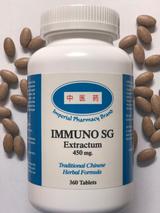|
Asian scorpion toxins used in TCM since ancient times
REVIEW on the used of busthus martensis (Asian scorpion) in Traditional Chinese Medicine (TCM), and its neurotoxin actions and application in the treatment of certain diseases and medical conditions:
Buthus Martensi (Asian scorpion) has a long history of pharcological use in Traditional Chinese Medicine. This medicine is prescribed either alone or in a multiple ingredients formula to resolve "wind" conditions (a TCM diagnostic term denoting one or more of the following symptoms: abrupt shaking, fainting, blood circulatory disturbance, severe rash, and certain inflammatory conditions).
Modern scientific investigations reveal that the venom from Buthus Martensi is a rich source of toxins with 18 peptides already identified. A powerful short-chain peptide (BmK622) from the venom of Buthus Martensi selectively blocks the delayed rectifier potassium channel.
Potassium (K+) channels play important roles in regulating various physiological functions in both excitable and non-exitable cells, such as control action potential and excitability in nerve and muscle cells, regulation of hormones secretion, cell volume, and T lymph cell activation.
Studies have also shown that Buthus Martensi is useful in resolving epilepsy, and also in treating rheumatoid arthritis, and other autoimmune inflammatory conditions. This traditional Chinese remedy in the form of full spectrum 5:1 concentrated extract powder, is available from various companies in the United States. This medicine is best used when prescribed professionally according to the patient's signs and symptoms. Consultining a doctor of Oriental medicine is always recommended before using any TCM remedy.
Regreso
|
| |







